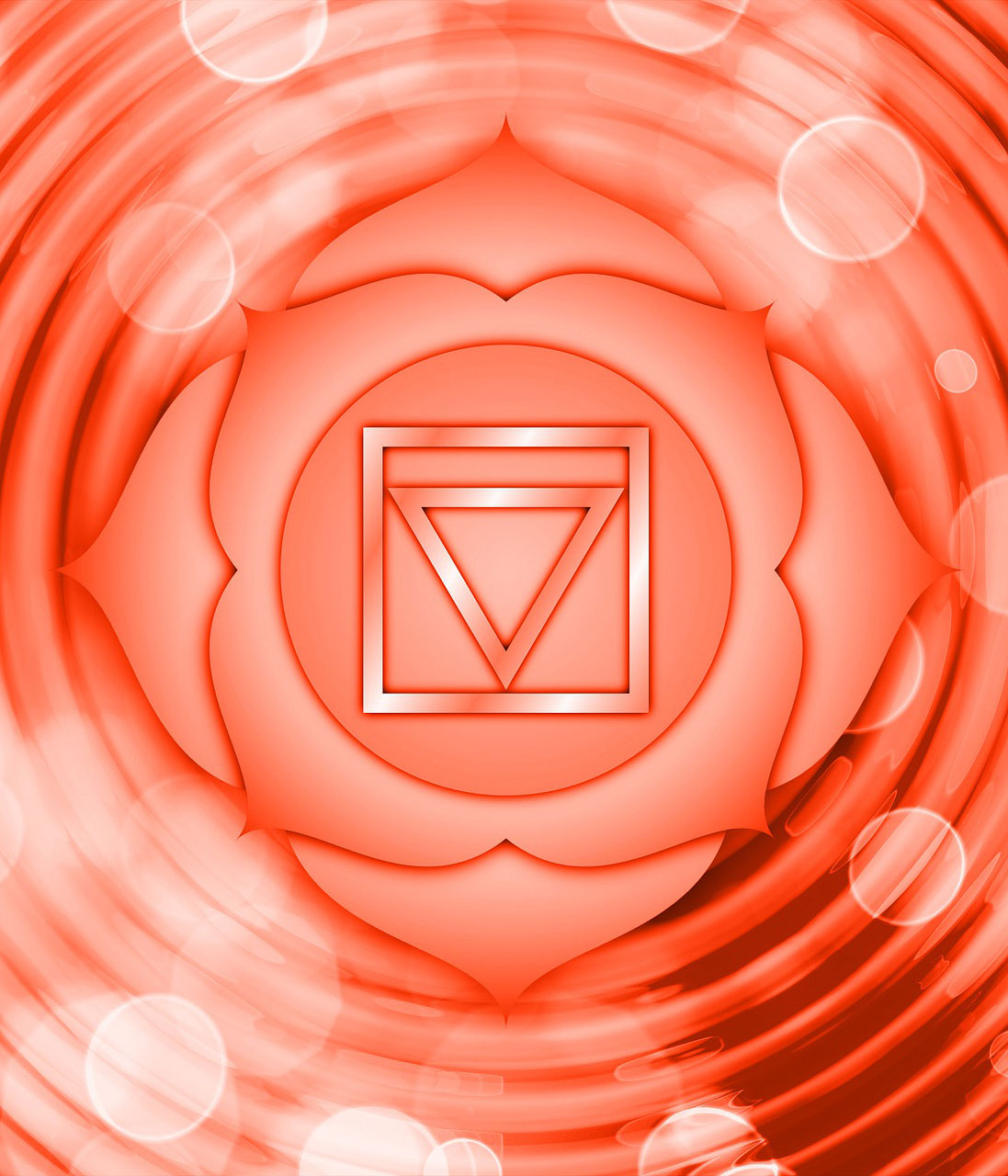
Root Chakra
Colour: Red
Crystal: Red Jasper, Garnet
Element: Earth
Sense organ: Nose
Bija seed mantra: Lam
The root chakra is red in the visible spectrum, which has the longest wavelength. It is called Muladhara in Sanskrit, also known as the root centre. It is situated in the perineum, at the base of the spinal column. This chakra is related to the element of Earth, and the sense organ is the nose.
This is the chakra of survival. We need food, water and air to survive. We also need sleep and shelter to fulfil our basic needs. In this root chakra, there is sex energy. This is the chakra of material existence. It is also the grounding chakra, the one that connects us to the earth and our own physicality.
Muladhara chakra is our source of stability and grounding that comes from deep connection to the earth and to our roots. When it is out of balance this affects everything related to our personal stability, safety and security. It controls how we deal with money, our body and our family: our roots.
In short, to build a solid life, we need a solid base.
Related plexus and organs: Sacral, coccygeal plexus and testes
Where is the Root Chakra?
Physically, the root chakra is located at the base of the spine between the pubic bones, tailbone and sitting bones. Its centre is the perineum, in the middle of the pelvic floor between the anus and genitals.
The pelvic floor is influenced and affected by the muscles of the legs and the feet. The integrity of the pelvic floor depends on the proper alignment of the legs and the balance of the feet, which act like the roots of a plant. We need our feet and legs to be alive and balanced in order to find grounding and stability.
What does a balanced Root Chakra look like?
Balanced attributes: Stamina, vitality, physical health, patience, ability to manifest dreams, inner security.
When this chakra is balanced, we feel supported, grounded, secure in the physical world, confident, connected, and healthy and happy with our body and sexuality. We trust the universe to take care of us and the world does not seem a scary place to live. We begin to realise that, just for today, we have a roof over our head, food on the table and some money in our pocket. Life is great – all our primary needs are met.
What does an unbalanced Root Chakra look like?
Possible chakra deficiency or excess: lack of energy, little enthusiasm, obsessive worrying, impatience, hyperactivity.
An imbalanced root chakra, which is low in vital energy, may mean that we experience emotional imbalances and suffer from anxiety and low self-esteem and feel out of touch with our body and sexuality. We may constantly worry about money, never feel satisfied with our work or home and have issues around food. It can also lead to self-destructive or addictive behaviour such as eating disorders, smoking, drug-taking, etc.
It can also cause illnesses such as degenerative arthritis, knee pain, lower back pain, depression, sciatica, constipation and issues with male reproductive parts and the prostate gland. There may be problems in the legs, feet, rectum, tailbone and immune system generally.
On the other hand, a root chakra which is imbalanced by being too strong can lead to isolation, materialism, bullying behaviour or selfishness.
How can I energise my Root Chakra?
There are a few practical things we can do to help to energise this area including:
Wearing red, especially red socks
Eat grounding and warming foods such as soups
Hugging trees
Getting our hands in the earth, planting, weeding, growing vegetables and flowers etc
Walk barefoot on the earth or on the beach
Sea swimming
Spending time in nature, connecting with the earth, can also make a huge difference
Yoga
Reiki
Ayurveda
Holding, wearing or putting red jasper in your pocket can also help
